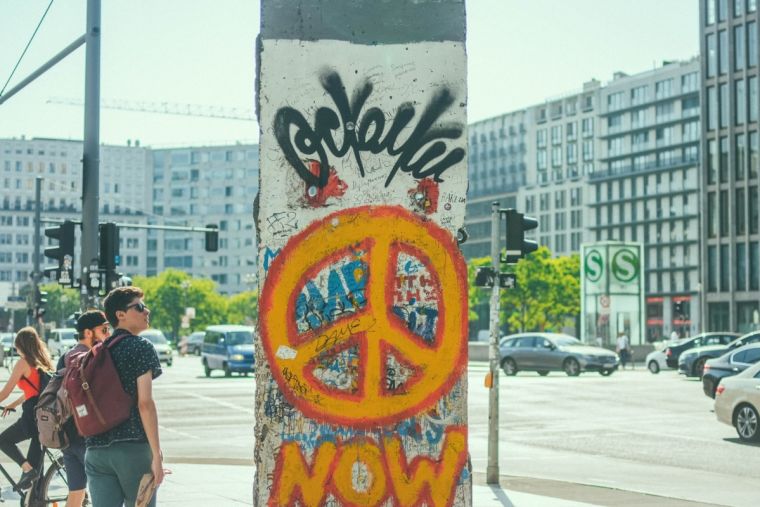The fall of the Berlin Wall: what it meant for Christians 30 years ago

On 9 November 1989, the Berlin Wall, the most visible symbol of the division between East and West, was dismantled as people asserted their longing for freedom. What did it mean for Christians on the eastern side of the wall?
The Berlin Wall appeared on 13 August 1961 and Open Doors' founder, Brother Andrew, was one of the first to pass through Checkpoint Charlie.
He has vivid memories of the impact of the Wall: "The flow of refugees from life under communist rule was stopped overnight. There was no way out, no one could escape. The result was a wave of suicides, including some evangelical pastors. They lost hope."
Communism was a regime based on rigid control. The church was isolated and under threat.
Brother Andrew's colleague, Johan Companjen, said: "Back then, the communists did not tolerate Christians at all. They felt totally forsaken. One pastor in Hungary said, 'No one knows where I am, not even my family.' Then he cried and cried. The police had closed his church and put him under house arrest."
However, Brother Andrew said that despite the threats, arrests and imprisonment, the Church showed strength. He quoted one pastor saying, "Boxing makes us strong."
By November 1989 it was clear that change was sweeping through the communist bloc.
Matthias Scheiter was a Christian in East Germany. He recalled the momentous events of 1989: "Being Christians in East Germany, we were constrained.
"Those who were not members of national children's and youth organisations were often not allowed to graduate from high school and so were unable to go to college or university.
"Without being a party member it was difficult to get a qualified job. We knew that agents of the state security force (STASI) attended church services.
"Thursday 9 November 1989 was a normal working day for me. In the evening news I heard that travel was to be facilitated for GDR citizens with immediate effect. I asked myself: 'Is this a new ploy of the government meant to appease the population?'"
"Never did I imagine that this simple announcement would trigger such a momentum which, in the end, toppled the Wall. My initial reactions were tears of joy.
"My first thought was that finally this era, with all its difficulties, was going to end! At the same time I hoped to be able to develop more freely, both as an individual and as a Christian, without the continual fear of being watched."
Their environment changed radically after the fall of the Wall, Scheiter said. The collapse of the economy resulted in high unemployment.
"Many were compelled to migrate to the 'West'. Christians left too, and congregations shrunk. But, in spite of the new challenges, Christians were grateful for the gift of freedom," he said.
Freedom did not solve every problem for the church. When the borders opened up, everybody and everything could enter: religious sects, pornographic literature, drug dealers, the mafia. The new materialism was a temptation.
Brother Andrew recalled: "Outside pressure had pushed Christians together; freedom brought a lack of cohesion."
Some churches, however, grabbed the opportunity and made the most of this freedom, becoming even stronger.











